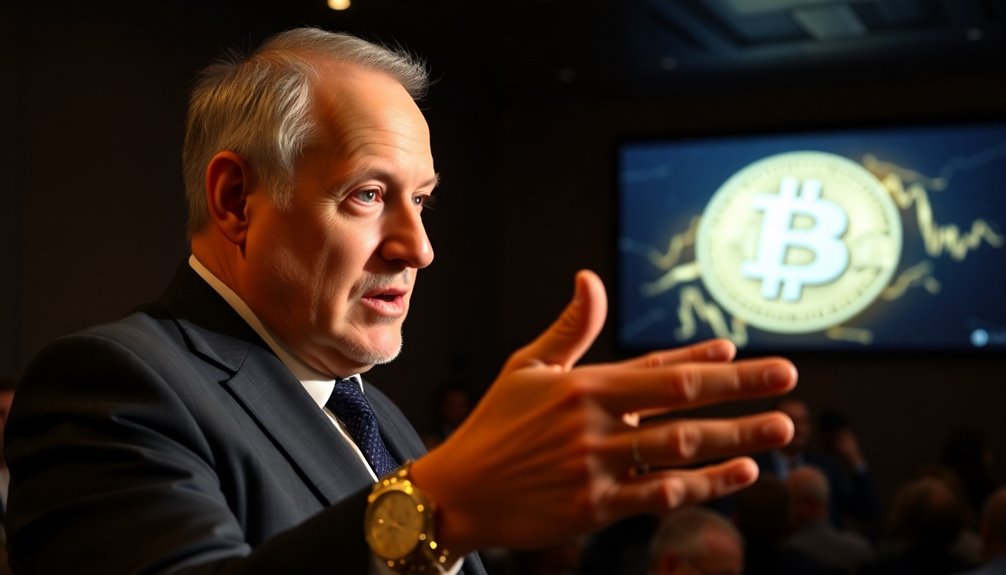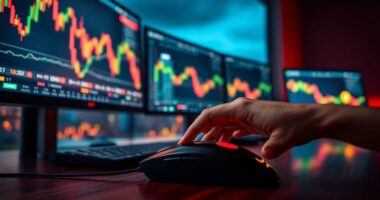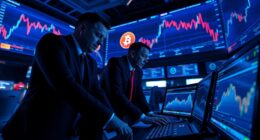Peter Schiff's recent comments on Bitcoin as a reserve asset have sparked significant debate. He calls the promotion of Bitcoin in this context "fraudulent," highlighting its volatility and potential risks to economic stability. Schiff's perspective raises important questions about the reliability of cryptocurrencies in financial systems. What implications could his views have on the future of digital currencies and traditional economies? The answers may not be what you expect.

Peter Schiff has taken a firm stance against the idea of a Bitcoin reserve, initially sparking confusion among enthusiasts who misread his comments as support. At first, when you heard him mention Bitcoin in a favorable light, you might've thought he was endorsing the concept. However, Schiff quickly clarified his position, renouncing any backing for a Bitcoin reserve and criticizing the misinformation circulating within the crypto community.
Peter Schiff firmly opposes the Bitcoin reserve idea, clarifying misconceptions and criticizing misinformation within the crypto community.
He accused Bitcoin promoters of deliberately spreading false information to inflate Bitcoin's value. While he acknowledges Bitcoin's status as "digital gold," he questions its potential as a reliable reserve asset. Schiff's skepticism isn't unfounded; he expresses serious concerns about the economic impact of a Bitcoin reserve, warning that it could lead to the devaluation of the US dollar. This concern is echoed in his remarks that Bitcoin promoters are labeled as fraudsters, highlighting the manipulative tactics he believes are prevalent in the community.
You can't ignore his insight about the potential for an unsustainable cycle where more Bitcoin would need to be purchased, just to keep prices stable. This, he argues, could lead to economic instability. Schiff also highlights Bitcoin's notorious volatility as a significant risk to any economic stability.
As an investor, you should consider the liquidity concerns he raises; the crypto market can be unpredictable, and that's a risk he believes isn't worth taking. He's maintained a long-term bearish outlook on Bitcoin, suggesting that the asset lacks the sustainability necessary to be considered a legitimate reserve.
The recent buzz surrounding Donald Trump's proposal to include multiple cryptocurrencies, including Bitcoin, in a reserve plan has stirred the market. Following Trump's announcement, Bitcoin prices surged, but Schiff remains unconvinced.
He's not just focusing on Bitcoin here; he's critical of altcoins like XRP too, arguing they don't hold reserve potential either. The crypto community finds itself in heated debate over the merits of including various altcoins in a reserve, something Schiff is quick to challenge as potentially misleading.
The market's reaction to Schiff's comments has been mixed; while some investors dismiss his views as irrelevant, others are more cautious. His concerns about regulatory uncertainty and market volatility continue to resonate.
Ultimately, Schiff's criticisms of the Bitcoin reserve concept serve as a reminder that while the crypto market can be alluring, significant risks and economic implications warrant careful consideration before diving in.









